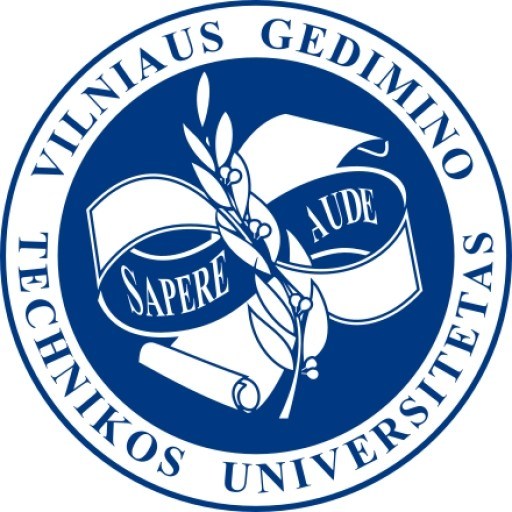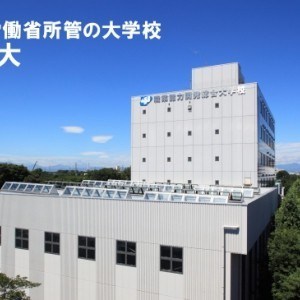Photos of university / #tu_berlin
Energy Engineering at Technische Universität Berlin offers an interdisciplinary and comprehensive education designed to prepare students for the complex challenges of modern energy systems. The program emphasizes the development of technical expertise in areas such as thermodynamics, power plants, renewable energy sources, energy storage, and sustainable technologies, combined with a strong foundation in engineering sciences, economics, and environmental considerations. Students will engage in rigorous coursework that covers thermal engineering, electrical grids, energy conversion, and the integration of renewable energy sources into existing power infrastructures. The program also includes practical training through laboratory work, project work, and internships, enabling students to apply theoretical knowledge in real-world contexts. Specializations within the program allow students to tailor their studies toward areas such as renewable energy technology, energy management, or power plant engineering, aligning educational outcomes with industry demands. The curriculum is designed to foster innovative thinking, problem-solving skills, and a sustainable approach to energy production and consumption, preparing graduates for roles in energy companies, consulting firms, research institutions, and governmental agencies. With access to state-of-the-art laboratories and close collaboration with industry partners, students gain valuable insights and hands-on experience in modern energy systems. The program also promotes international perspectives through exchange programs and joint research initiatives, providing students with a global outlook on energy challenges. Graduates of the Energy Engineering program will be equipped with the technical, managerial, and environmental knowledge necessary to contribute effectively to the transition toward sustainable and efficient energy systems worldwide, making them highly competitive in the evolving energy sector.
The Master's degree program in Energy Engineering at Technische Universität Berlin offers a comprehensive and interdisciplinary education designed to prepare students for innovative solutions in the diverse field of energy systems. The program focuses on sustainable energy production, efficient energy conversion, and strategic energy management, emphasizing both theoretical foundations and practical applications. Throughout the coursework, students explore advanced topics such as renewable energy technologies, thermal and electrical energy systems, energy storage, and the integration of various energy sources into existing infrastructure. The curriculum combines core engineering principles with modern developments in areas like smart grids, energy efficiency, and climate-friendly technologies, equipping graduates with the skills necessary to tackle current and future challenges in the energy sector.
Students have the opportunity to engage in research projects, internships, and laboratory work that foster hands-on experience and collaboration with industry partners. The program emphasizes international perspectives and encourages the development of innovative approaches to energy problems, preparing graduates for careers in industry, research institutions, and policy-making bodies. The academic environment at TU Berlin promotes interdisciplinary thinking and innovation, supported by world-class faculty and state-of-the-art laboratories. Graduates of this program are well-positioned to contribute to the transition towards sustainable and renewable energy solutions and to assume leadership roles in the evolving global energy landscape. The program prepares students for a wide range of professions, including energy project management, consultancy, research and development, and technical consulting, ensuring they are equipped to make meaningful contributions to the energy transition both domestically and internationally.
Program requirements for the Energy Engineering master's degree at Technische Universität Berlin include a completed undergraduate degree in engineering, physics, chemistry, or a related STEM field with a strong foundation in mathematics and science. Applicants must demonstrate proficiency in English, typically through standard language tests such as TOEFL or IELTS, unless their previous education was conducted in English. A comprehensive application must be submitted, including academic transcripts, a curriculum vitae, and a motivational statement outlining the applicant’s interest and goals related to Energy Engineering. Relevant professional experience or internships in energy or related fields are advantageous but not obligatory. The admissions process also assesses the candidate’s academic performance, with a preference for applicants who have achieved good grades in relevant coursework such as thermodynamics, fluid mechanics, electrical engineering, and environmental sciences. Some programs may require letters of recommendation from academic or professional references attesting to the applicant's competencies and potential for graduate study. The admission criteria are competitive, and meeting the minimum requirements does not guarantee acceptance. In addition to academic prerequisites, prospective students should ensure they meet application deadlines and provide all required documentation to facilitate review by the admissions committee. The program encourages applicants to have a clear understanding of their academic and professional objectives in the field of energy engineering and to demonstrate their motivation to contribute to advancements in sustainable energy technologies, energy systems optimization, and related research areas. Overall, these requirements aim to select highly qualified students capable of engaging in rigorous coursework and research activities in energy engineering, fostering innovation and sustainable development in the energy sector.
Funding options for the Energy Engineering program at Technische Universität Berlin include a variety of financial support mechanisms designed to assist both domestic and international students. Students can explore scholarships offered directly by the university, which often reward academic excellence, research potential, or specific fields of study related to energy engineering. The DAAD (German Academic Exchange Service) provides numerous scholarships for international students, which prospective applicants are encouraged to apply for early, as these funds can significantly offset tuition fees and living expenses.
Furthermore, the German government offers governmental student loan programs such as KfW Student Loan, which provides low-interest loans to students pursuing higher education degrees in Germany. These loans generally have flexible repayment options and are available to both German and international students enrolled at accredited universities like TU Berlin. Additionally, students may be eligible for regional or national grants that support innovation and research projects aligned with energy engineering themes.
Many students also finance their studies through part-time employment opportunities available on or near campus. TU Berlin's location in Berlin, a major European city with a strong industrial and technological sector, facilitates access to internships and part-time jobs relevant to energy engineering, providing valuable practical experience and supplementary income. In some cases, students benefit from employer-sponsored education programs, where their employers financially support their studies in exchange for commitments to work for the employer upon graduation.
Students from EU/EEA countries may have access to financial support schemes under the Erasmus+ program, which offers grants for study exchanges or joint master's programs in collaboration with partner institutions. Non-EU students, depending on their nationality and residence status, might also be eligible for certain scholarships or financial aid programs aimed at international students. It is recommended that prospective students consult the university's international office and financial aid services early in their application process to identify all available funding opportunities. Overall, while tuition fees for master's programs at TU Berlin are generally affordable compared to other European institutions, the variety of grants, loans, scholarships, and part-time work available makes financing Energy Engineering studies feasible for many students.
Energy Engineering at Technische Universität Berlin is a multidisciplinary master’s program designed to prepare students for the challenges of sustainable energy production, distribution, and utilization. The curriculum combines theoretical fundamentals with practical application, emphasizing modern technologies and innovative solutions to address global energy problems. Students gain expertise in areas such as renewable energy sources, energy systems, energy management, and environmental impact assessment. The program covers key topics including thermodynamics, fluid mechanics, electrical engineering, and control systems, enabling graduates to develop and optimize efficient energy systems.
Throughout the program, students have the opportunity to participate in research projects, internships, and collaborations with industry partners, which facilitate hands-on experience in real-world scenarios. The program also encourages interdisciplinary learning, integrating aspects of mechanical, electrical, and environmental engineering to foster a comprehensive understanding of energy challenges. Internationally oriented, the program attracts students from around the world, fostering a diverse academic environment. Graduates of Energy Engineering are well-equipped for careers in energy companies, consulting firms, governmental agencies, or further academic research. The degree underscores the importance of sustainable development and prepares students to contribute significantly toward the transition to cleaner, more efficient energy sources. The program is offered in English, ensuring accessibility for international students and aligning with global standards in engineering education.









